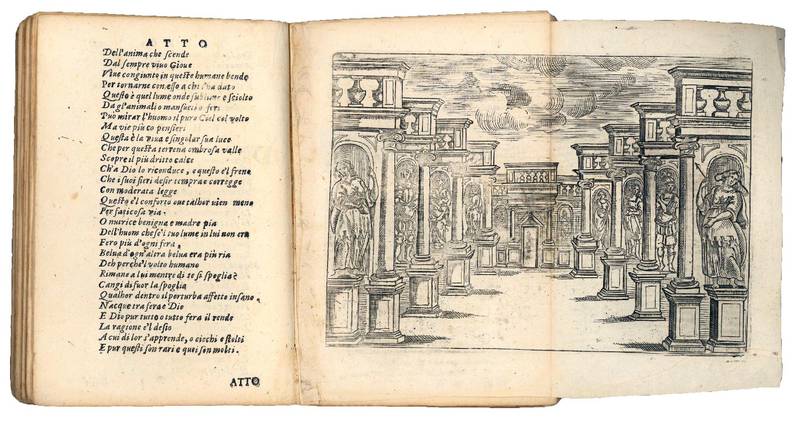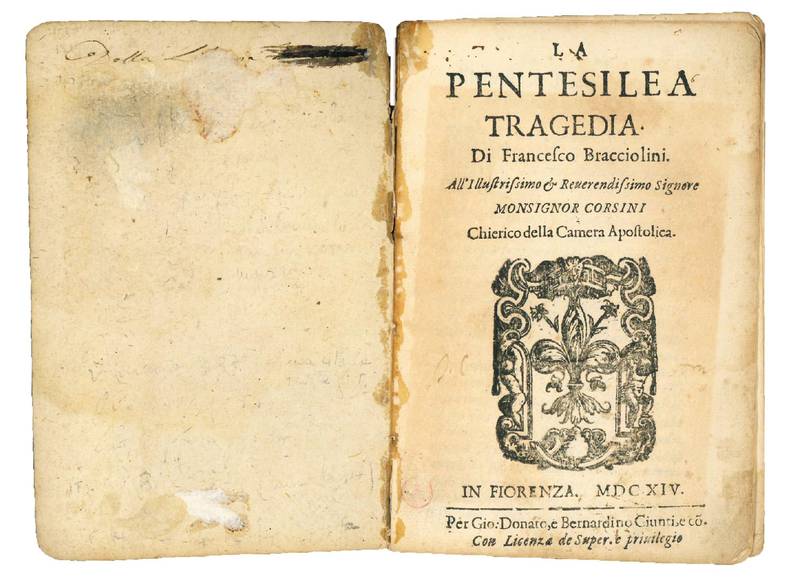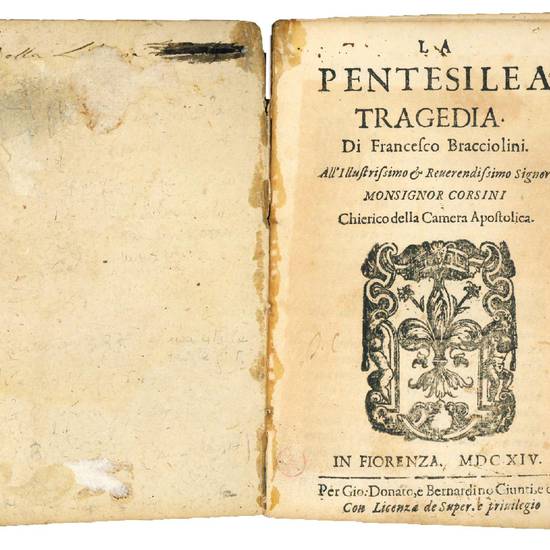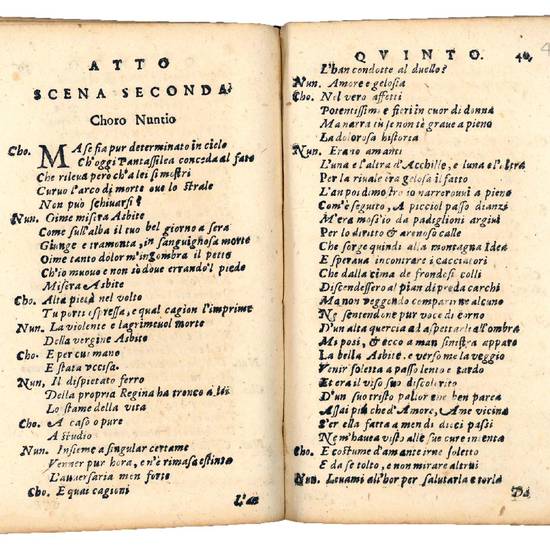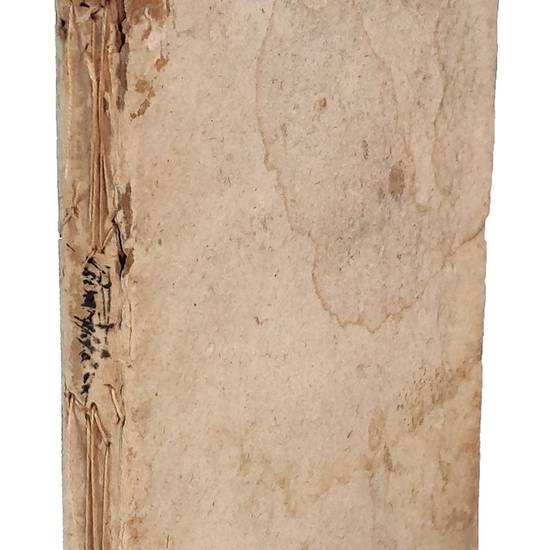WITH THE ALWAYS MISSING SCENOGRAPHIC PLATE
8vo (150x10 mm). [50] leaves (numbered pp. 1-9, ll. 10-24, 17-28, 28-32, 34-40, [6]) and 1 engraved plate. Collation: A42A-F8. The blank leaf A4 is present, while the final lank F7 and F8 are missing. Printer's device on title page. Woodcut initials. Roman and italic type. Contemporary cardboards “alla rustica”, inked title on spine (stained). Title page slighlty soiled, some staining and foxing, wormtrack on the upper margin of a few leaves not affecting the text, small loss to the outer blank margin of the last leaf, a bit loose, but a good, extremely genuine copy in its first binding.
First edition of this tragedy in five acts, with a chorus at the end of each act, which tells the story of the tragic love between Achilles and Penthesilea, queen of the Amazons. Pentesilea clearly reflects the moralizing pessimism, influenced by Seneca and Tasso, of the Italian theater in the early seventeenth century. To the present copy is added a plate depicting the scene of the tragedy, which apparently is not mentioned in any other copy.
Francesco Bracciolini Dell'Api was born in Pistoia. Following in his father's footsteps he studied law in Bologna and perhaps in Pisa, but moved soon after graduation to Florence, where he could follow his natural inclination towards poetry: at twenty he became a member of the Accademia Fiorentina and started writing his first poetic compositions. After 1590 he ventured, with not great success, to the courts of Rome, Naples, Genoa, and again Rome. From there he went to Milan, where he stayed for about six years (1595-1600) as secretary to Cardinal Federico Borromeo. In 1601 Bracciolini returned to Rome and became secretary of Maffeo Barberini, who appreciated his poetry and encouraged him to write. He then started an intense literary and court activity: he was among the founders of the Accademia degli Umoristi and he was welcomed with his patron in that of the Alterati in Florence; he also followed Barberini in numerous legations for the Roman Curia. In September 1605 Bracciolini suddenly left Barberini and went back to his hometown of Pistoia, with the intention of giving himself to the ecclesiastical life, perhaps with the goal of obtaining a canonry. In Pistoia, far from the courts, he remained sixteen years, the most prolific period of his production. The satirical poem Lo Scherno degli dei, published in 1618, is Bracciolini's best known and most successful work. Upon the election to the papal throne of Maffeo Barberini, he returned to Rome, welcomed with sympathy and filled with benefits and honors. He was even allowed to add the Barberini bees to his family coat-of-arms and the name Dell'Api to his own surname. Upon the death of Urban VIII (1644), Bracciolini, by then old and tired, took refuge in his native Pistoia; he died there the following year (cf. L. Rossi, Bracciolini, Francesco, in: “Dizionario Biografico degli Italiani”, XIII, 1971, s.v.).
Italian Union Catalogue, IT\ICCU\BVEE\023524; Vinciana, 3874; Bregoli Russo, 119; Allacci, 620; Clubb, 193.
[10372]

